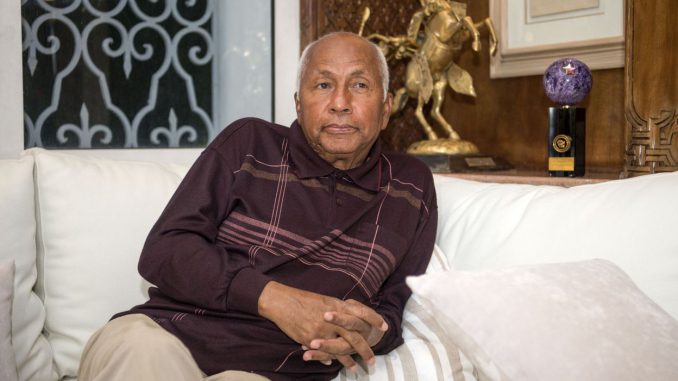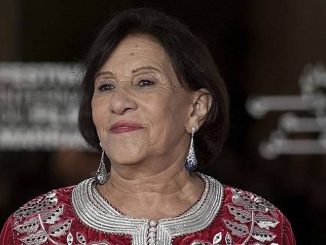
Souhail Benbarka is one of the first generation of filmmakers to have marked the history of Moroccan cinema, whether through “Mille et une mains” which he directed in 1972 and which was distributed in 115 countries throughout the world, or his masterpiece “La guerre des trois rois”, or “De sable et de feu…….. Le rêve impossible”, his new film through which he resumes his activity as a director. This film will be released in theatres in October, after the premiere in Bamako in the presence of Malian President Ibrahim Boubacar Keita.
Benbarka is originally from Guelmim, in the Moroccan Sahara region, but was born in Timbuktu, Mali, in 1942. His relationship with cinema goes back to the early 1960s. His passage through a street in Rome, where he studied journalism when he was only 17 years old, coincided with the shooting of a film by the Italian giant Federico Fellini. He fell in love with the camera and decided, in a moment of madness, to make filmmaking his profession and livelihood.
This is how he started studying cinema in Italy. And in a short time, he managed to work with high-caliber filmmakers, such as Valentino Orsini, whom he accompanied in 1969 as assistant director for his film “I danatti della Terra” (The Damned of the Earth). He got another opportunity as Pierre Pasolini’s assistant for the film “Oedipus the King”. Their collaboration have continued for five years, which was of great benefit to Benbarka. In parallel, he has directed several short films and documentaries for the Italian channel Rai.
Benbarka’s films have received numerous international awards and distinctions. These include his film “Amok”, which received the Vatican Prize in 1984 in addition to the first prize at the Moscow National Festival.
Moroccans still remember his many films, just as they remember the period when he was President of the Moroccan Film Center in its early days.



Be the first to comment